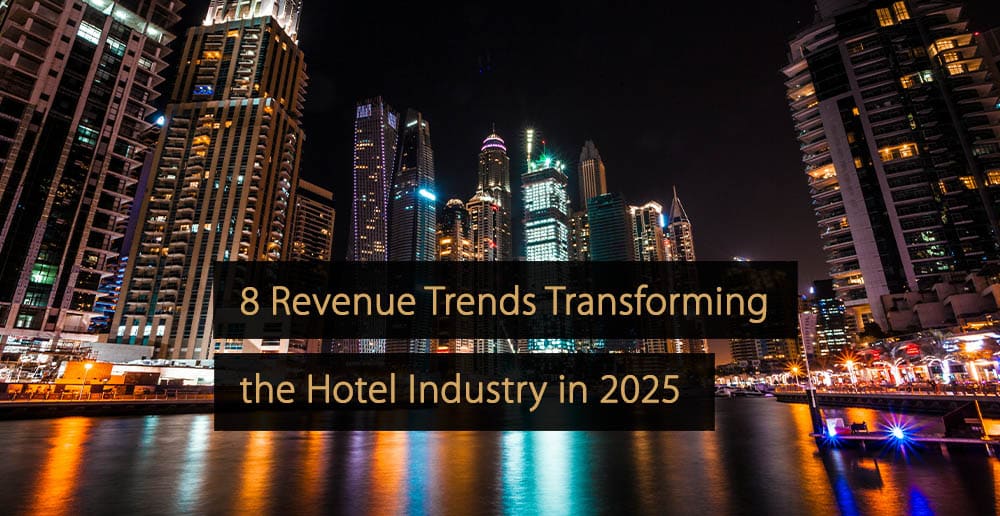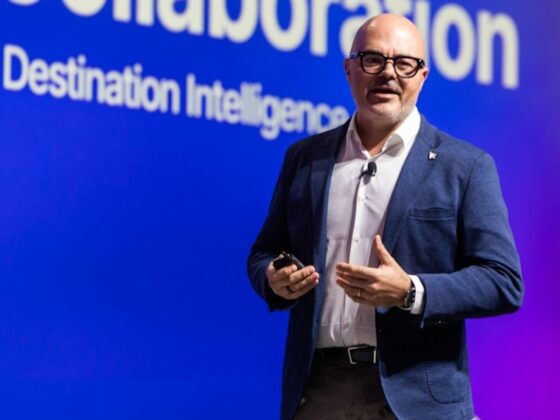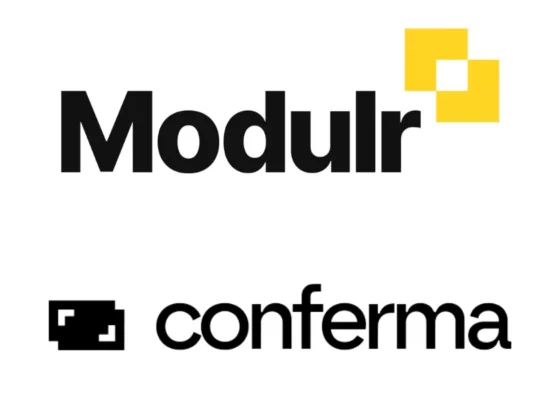
The hotel industry in 2025 is undergoing a profound transformation, driven by technological advancements, shifting guest expectations, and the demand for sustainable practices. Revenue management has become a cornerstone for success in the hospitality sector, leveraging data and innovation to maximize profitability.
8 Revenue Management Trends Transforming the Hotel Industry
This article delves into the top trends reshaping revenue management in 2025 and how hotels are adapting with forward-thinking strategies.
1. AI and Machine Learning Revolutionizing Guest Experiences
Artificial Intelligence (AI) and machine learning are revolutionizing the hotel industry by delivering hyper-personalized travel experiences. In 2025, these technologies are playing a pivotal role in revenue management, enabling hotels to analyze vast datasets and extract actionable insights. The rise of generative AI further enhances these capabilities.
Hotels have long collected extensive guest data but often struggled to use it effectively due to fragmented systems. AI bridges these gaps by integrating disparate data sources and turning raw information into meaningful insights. For example, platforms like Mews unify hotel systems to offer dynamic pricing, personalized recommendations, and proactive guest service.
2. Real-Time Data and Automation: A Game-Changer
Real-time data and automation are transforming revenue management by allowing hotels to make data-driven decisions instantly. Tools like STR Global, OTA Insight, and Atomize empower hoteliers to monitor competitor pricing, analyze market trends, and adjust rates dynamically.
Hyatt Hotels, for instance, uses real-time insights to fine-tune regional pricing strategies. By leveraging live data on booking patterns and guest preferences, Hyatt achieves a balance between occupancy and profitability. Similarly, AccorHotels employs automation to streamline inventory updates and reporting, freeing up staff for strategic decision-making while ensuring pricing remains competitive.
3. PMS and RMS Integration for Seamless Operations
The integration of Property Management Systems (PMS) and Revenue Management Systems (RMS) is revolutionizing hotel operations in 2025. Real-time synchronization between these systems enables hotels to respond quickly to market fluctuations, optimize pricing, and enhance operational efficiency.
For example, Marriott International has adopted integrated systems to refine its revenue strategies. By merging PMS and RMS functionalities, Marriott ensures pricing decisions are always data-driven and consistent across its portfolio. The recent acquisition of Atomize by Mews further highlights the growing demand for integrated solutions that automate pricing adjustments and streamline operations.
4. Sustainability Driving Revenue and Loyalty
Sustainability is no longer optional in 2025; it’s a key factor driving revenue and brand loyalty. Travelers, especially Millennials and Gen Z, increasingly choose eco-friendly accommodations. Hotels are leveraging green practices to align with guest values while boosting profitability.
Scandic Hotels is a leader in this space, using green certifications and energy-efficient technologies to attract eco-conscious guests. Beyond operational improvements, hotels like Six Senses Resorts incentivize sustainable guest behaviors, such as reducing water usage, by offering perks or discounts. These practices not only reduce costs but also strengthen brand loyalty.
5. Omnichannel Distribution Strategies Redefine Reach
The distribution landscape is evolving in 2025, with hotels embracing omnichannel strategies to reach guests across multiple platforms, including direct websites, OTAs, mobile apps, and AI-driven search tools. Legislative changes and competition are challenging traditional OTAs like Booking.com and Expedia, prompting hotels to focus on direct bookings.
Hilton’s loyalty program and mobile app have proven effective in driving direct bookings by offering exclusive benefits. Meanwhile, Marriott’s “Look No Further” policy ensures rate parity, encouraging guests to book directly with confidence. Maintaining up-to-date, SEO-optimized websites is critical as AI tools like ChatGPT increasingly influence booking decisions.
6. Short-Term Rentals and Alternative Accommodations
The rise of short-term rentals has pushed traditional hotel chains to diversify their offerings. Hotels are now venturing into boutique accommodations, serviced apartments, and branded residences to compete with platforms like Airbnb.
For example, Hilton’s acquisition of Graduate Hotels taps into boutique-style accommodations targeting younger travelers. Similarly, Hyatt’s acquisition of Apple Leisure Group strengthens its presence in the leisure market, while Wyndham Residences caters to long-stay guests. These initiatives highlight the industry’s shift towards blending traditional hospitality with residential services.
7. Voice and Chatbot Technology Enhancing Personalization
Voice-activated technology and AI-powered chatbots are transforming guest interactions, providing seamless communication and personalization. Tools like DialogShift enable hotels to handle thousands of guest inquiries automatically, freeing up staff for complex tasks.
Hotel Oderberger in Berlin uses chatbots to manage 4,000 guest queries monthly, with 97% resolved without human intervention. As guest expectations for personalized service grow, AI tools are essential for managing high demand without overburdening staff.
8. Hyper-Personalized Pricing Models
Hyper-personalization is a key trend in 2025, enabling hotels to tailor pricing strategies to individual guest profiles and preferences. By leveraging AI and machine learning, hotels can offer customized rates, promotions, and packages that enhance guest satisfaction while maximizing revenue.
Marriott Bonvoy exemplifies this trend, using detailed customer data to deliver targeted offers and curated experiences. Whether offering discounts to families or perks for business travelers, Marriott’s approach drives loyalty and repeat bookings. This level of precision ensures guests feel valued while boosting profitability.
Revenue management in 2025 embraces innovation, sustainability, and guest-centric strategies through AI-driven personalization and sustainable practices. Hotels adopting these trends and cutting-edge technologies while prioritizing guest experiences are poised for success in an evolving landscape.
Free Hotel Technology Quiz: Discover Your Hotel’s Technology Level!
Take the quiz now to discover where your hotel stands on the technology spectrum, learn how to build a tech stack that supports your long-term success, and gain valuable insights on enhancing your hotel’s operations with the right technology.
Click here to take the “Hotel Technology Quiz” and discover your hotel’s technology level!
More Tips to Grow Your Business
Revfine.com is the leading knowledge platform for the hospitality and travel industry. Professionals use our insights, strategies, and actionable tips to get inspired, optimize revenue, innovate processes, and improve customer experience.
Explore expert advice on management, marketing, revenue management, operations, software, and technology in our dedicated Hotel, Hospitality, and Travel & Tourism categories.






